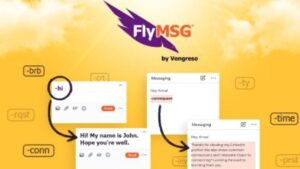Overview
Wordplay is the art of manipulating language to entertain, provoke thought, or amuse. It involves clever use of words, sounds, and meanings to create humor, surprise, or intellectual engagement. Whether through puns, double ententes, or poetic devices, wordplay allows speakers and writers to push the boundaries of language, revealing its playful, flexible, and often complex nature. From literature to casual conversation, wordplay enriches communication, making it more engaging and multi-dimensional.
Get wordplay Deals

Features of Wordplay
- Humor Creation:
Wordplay is often used to inject humor into conversations, literature, and media. Puns, jokes, and clever use of words create amusement and entertainment, adding a lighthearted tone to the context. - Multiple Meanings:
Wordplay thrives on ambiguity. It often exploits words that have multiple meanings, allowing a phrase to be understood in more than one way. This duality adds depth to language, making it both entertaining and intellectually stimulating. - Cognitive Engagement:
Understanding wordplay requires mental agility, as it challenges the brain to think about words in unconventional ways. Whether it’s recognizing a pun or unraveling a riddle, wordplay encourages lateral thinking and creativity. - Memorability:
Clever wordplay, especially in slogans or advertisements, sticks in people’s minds. A witty phrase is more likely to be remembered, making it a powerful tool for marketing, branding, and communication. - Cultural Connection:
Wordplay often relies on cultural references, shared knowledge, or inside jokes, making it a way to connect with a specific audience. It taps into a common understanding, enhancing social bonds and community spirit. - Linguistic Creativity:
Wordplay showcases the flexibility and beauty of language. It often combines sounds, meanings, and structures in novel ways, revealing the richness of linguistic expression. Forms like anagrams, palindromes, and portmanteaus are examples of this creative exploration. - Emotional Impact:
Beyond humor, wordplay can also evoke emotions or deepen the meaning of a text. In poetry and literature, wordplay can add layers of irony, emotion, or surprise, enhancing the overall impact of the narrative.
Plan for Using Wordplay
- Integrating Wordplay in Writing:
- Creative Writing: Use puns, double entendres, and metaphorical wordplay to add layers to your characters or dialogue. Make word choice intentional to create depth or humor.
- Poetry: Employ alliteration, assonance, and anagrams to make your poems more rhythmically interesting and meaningful.
- Advertising & Branding: Use catchy slogans with puns or portmanteaus to create memorable branding that resonates with your target audience.
- Using Wordplay in Speech:
- Public Speaking: Incorporate wordplay in speeches or presentations to keep the audience engaged and entertained. Light humor through clever phrasing can help make key points more memorable.
- Everyday Conversation: Use wordplay to spark humor and connection in casual conversations. Sharing a joke or pun can lighten the mood and build rapport.
- Educational Purposes:
- Language Learning: Teach students the flexibility of language through wordplay exercises. This helps them develop creative problem-solving skills and a deeper understanding of vocabulary.
- Cognitive Development: Include word games like crosswords, riddles, and spoonerism challenges in classrooms to boost memory, attention to detail, and verbal reasoning.
- Content Creation:
- Social Media & Marketing: Use wordplay in captions, taglines, and campaigns to grab attention and engage audiences. A clever twist on words can make content shareable and increase visibility.
- Creative Projects: For blogs, podcasts, or YouTube videos, integrate wordplay to create humorous, thought-provoking, or memorable content that resonates with viewers.
- Cultural Engagement:
- Comedy and Entertainment: Wordplay can form the backbone of stand-up comedy or improvisation. Writers and performers can use clever linguistic twists to entertain, surprise, or challenge their audiences.
- Events and Games: Host wordplay-based activities like pun contests, trivia, or riddle nights to foster engagement in social or community settings.
Get More Appsumo Deals
Conclusion
Wordplay is a versatile tool that can enhance humor, cognitive skills, cultural connection, and communication effectiveness. Whether for professional writing, casual conversations, or educational purposes, implementing wordplay brings creativity, wit, and intellectual engagement into any context. A structured approach t











